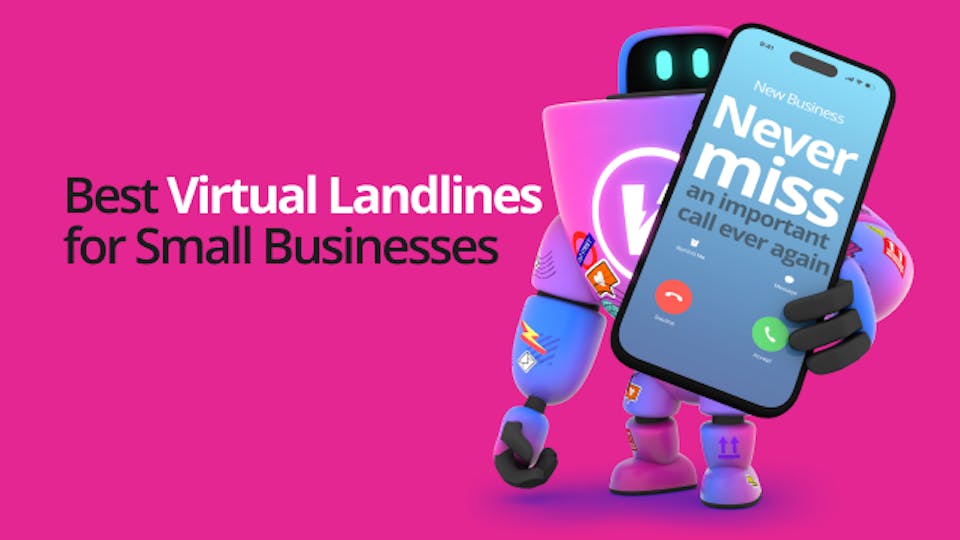09 December, 2025
Starting a Business While Working Full-Time in the UK: Guide for Sole Traders & Limited Companies
Table of Contents
There are lots of reasons why someone might consider running a business while working full-time in the UK. Perhaps they want to work on a passion project during their free time, or one day hope to run their business full-time, but need a financial safety net to get it off the ground. They might simply want to run a side business to make a little extra cash.
This is common among people who are just starting out on their own in all sorts of industries, who simply want to fit their new side hustle around their existing 9-to-5 job. Here are some examples we’ve encountered from our users:
- Starting a candle business
- Launching a successful nail business
- Opening your own online bookshop
- Starting a recruitment agency
- Becoming an interior designer
- Registering as an online travel agent
- How to set up a consulting business
This allows people to dedicate time to their new venture without losing the guaranteed income of their previous job.

Whatever your reason for wanting to start a business, there’s nothing standing in the way of you opening up your own company while employed by another company (we would, however, always recommend that you check your employment contract, especially if you are starting your business in the same field as your full-time work). It’s even possible to open a business in London as a non-UK national!
In this article, we’ll discuss whether you should run a business while employed in the UK, explore the legal and tax implications of doing so, and take a look at how you can get started with a virtual office address that’s perfect for entrepreneurs and start-ups.
Should you start your own business while working full-time?
Starting a business alongside full-time employment can be a smart way to test an idea with lower financial risk, but it’s not a decision you should take lightly.
The first step is to check your employment contract carefully. Some contracts include clauses that restrict outside work, particularly if it competes with your employer’s services or uses their intellectual property. Breaching those terms could jeopardise your job or lead to legal disputes.
You should also consider how a new venture will impact your work-life balance, as running a business requires time, energy, and consistency. Ask yourself whether you can realistically manage both without burning out.
Finally, even a small venture needs some initial capital for tools, marketing or software, and it’s important not to strain your personal finances, so make sure you’ve got the startup costs covered.
Is it legal to start a business while employed?
You’ve got access to the required capital and have a great idea, but is starting a business while employed legal in the UK?
There are no legal barriers to you launching your new business when employed, although, as stated above, you’ll need to check your employment contract to ensure you’re not breaching that contract.
However, you must ensure you register for tax correctly if you earn money outside your job, either as a sole trader or through a limited company. Being transparent with your employer and staying compliant with HMRC will ensure you don’t fall foul of the law or what your employer expects.
Tax implications of running a side business while employed
As well as considering the legalities of starting a business while employed, you should also consider the tax implications. In this section, we’ll break down everything you’ll need to think about when building your own company.
Registering with HM Revenue and Customs (HMRC)
Regardless of the size of your company, you must inform HMRC about it. It doesn’t matter if you’re working as a sole trader, within a partnership, or running a team of employees; HMRC must be notified.
If you’re planning to set up a limited company, you’ll also need to register the business with Companies House. This can be done directly with them via post or online, or you can choose to use a company formation service. Once you’ve registered, Companies House will get in touch with HMRC to let them know your business is up and running.
Unsure of which company structure is right for you? Check out our blog to understand how you can choose between registering as a self-employed or limited company.
Finally, if you’re looking to hire workers for your business, you’ll also need to register as an employer and notify HMRC that you will be filling out employer Self Assessment forms.
Filing tax returns
If up until this point you’ve only worked as an employee, it’s likely you’ve never had to fill out tax returns yourself—but this will all change when you start running your own business! Your tax return must include all the income you make, both from your start-up and your employer.
When running a limited company, you will also be required to complete documents recording the salary you receive from your company, as well as any benefits you receive or expenses you are reimbursed back by the business.
If you’re a sole trader, you will be expected to fill out self-employment papers. In the event you run more than one company as a sole trader, you will be required to fill out self-employment tax papers for each individual company.
There are also some changes being brought in by the HMRC under the banner of ‘Making Tax Digital’ (MTD) that will require Sole Traders to use digital financial record-keeping software and submit quarterly updates rather than an annual self-assessment tax return. If you need some software, we’ve got an amazing 95% off deal with Xero, a fully compliant accounting software used by over 3.5 million people.
Making National Insurance Contributions (NIC)
As an employee, a portion of your wages goes towards class 1 employees’ NIC, with your employer paying HM Revenue and Customs for you. Similarly, when you start up and are employed by a limited company, you will still be required to pay class 1 employees’ NIC, but only if you are paid above a certain amount.
Sole traders may pay two different types of NIC. This includes a flat rate paid annually, called a class 2 NIC. However, you may be exempt from paying this rate if you make under a certain amount for the year. In addition to paying class 2 NIC, you will also have to pay class 4 NIC on your revenue.
How HMRC allocates your tax allowance between your employment salary and self-employed income
Your personal tax allowance is only applied once each tax year, even if you have both employment income and sole trader earnings.
HMRC will usually assign your full allowance to your main PAYE employment through your tax code, with additional income from self-employment taxed separately via Self Assessment. Only the earnings above your remaining allowance (if any is left) will be taxed.
If your PAYE salary already uses up your personal allowance, your sole trader income will be taxed in full. However, you can ask HMRC to split your allowance differently if your self-employed income becomes your main source of earnings.
The key point is that you do not receive two allowances: HMRC applies just one and divides it across your income sources based on the information they hold.
Personal allowance restrictions: When to expect to pay higher-rate tax
| Income tax band | Income tax thresholds | Tax rate |
|---|---|---|
| Personal Allowance | Up to £12,570 | 0% |
| Basic Rate | £12,571 to £50,270 | 20% |
| Higher Rate | £50,271 to £125,140 | 40% |
| Additional Rate | Over £125,140 | 45%; 20% on first £12,570 |
Source: gov.uk
Once your total income begins to exceed £50,270 (current threshold), you’ll start paying tax at the higher rate.
If your employment income is £55,000, your personal allowance will already be fully used by your salary through your PAYE tax code, and any additional sole trader income will be taxed at the higher rate of 40 per cent via Self Assessment.
For those earning more than £100,000 in total across all sources, the personal allowance is gradually reduced, with HMRC removing £1 of your allowance for every £2 you earn over £100,000. By the time you reach £125,140, you will no longer receive any personal allowance at all, while every pound earned over this threshold is taxed at the Additional Rate (45%). This is called the ‘60% tax gap’ and should be avoided.
Paying yourself: The best structure for tax efficiency
If you’re earning both a salary from an employer and income as a self-employed contractor, the most tax-efficient structure often depends on how much you earn and how regularly.
Once your personal allowance has been used up through employment, your self-employed earnings will be taxed in full—at 20% up to a total earnings of £50,270, at 40% on earnings between £50,271 and £125,140, and at 45% on earnings above £125,140.
A common route for contractors is to set up a private limited company and use a salary–dividend combination. By taking a modest salary via your limited company (often set at the National Insurance threshold) and the rest as dividends, you can reduce your tax and National Insurance liabilities while keeping your earnings within lower tax bands.
For the 2025/26 tax year, the dividend tax rates are:
- 8.75% – Basic rate
- 33.75% – Higher rate
- 39.35% – Additional rate
You also receive a £500 dividend allowance, meaning your first £500 of dividends are tax-free, in addition to your personal allowance.
If your contractor income is irregular or low, remaining a sole trader may still be suitable, but once your earnings grow, a limited company can offer significantly more flexibility and control.
You should always speak to a qualified accountant before making structural changes, as everyone’s circumstances are different.
Classifying your employment status: Potential penalties & warnings
If you earn a salary through employment and also run a business as a sole trader or director of a limited company, it’s vital that your employment status is correctly classified for tax purposes.
HMRC takes misclassification seriously, especially if your self-employed work resembles employment in practice. If HMRC believes you should have been taxed as an employee, they can demand backdated Income Tax and National Insurance, along with interest and penalties.
In some cases, HMRC may reclassify income as employment earnings and adjust previous tax years, meaning both you and the company you worked for could be liable. That may also include unpaid employer National Insurance contributions.
Misclassification doesn’t just bring financial consequences; it can also damage client relationships, lead to compliance reviews and affect your eligibility for certain tax reliefs. Ensuring clarity from the outset, with written contracts and professional tax advice, is essential.
Can you be registered as a sole trader and be employed?
Yes, you can register as a sole trader and be employed, provided your business does not go against any of the conditions set out in your employment contract. For example, you probably won’t be able to start a business which is a conflict of interest, and not sell products or services that infringe the intellectual copyright of your employer.
Assuming your business idea does not breach your contract, you should be able to be a sole trader and be employed at the same time. That being said, you should still let your employer know about running a side business while employed. Being upfront and transparent from the beginning will help avoid any awkward conversations down the line, making it easier for you to perform both in your day job and as a sole trader. Don’t forget to take care of a business address for self-employed as well.
How to be employed and have a limited company
Likewise, you can be employed and have a limited company, as well. The same rules apply here as with sole trading and every other type of business model, so ensure that your business idea does not infringe upon your contract.
Wondering about the process of company registration? Our article explains How to Register a Company in the UK in simple terms.
Consider Hoxton Mix your trusted partner
Starting a business, even if you’re not already employed, can be a bit of a minefield. With so many factors to consider and so many moving parts to keep track of, running your own start-up can be daunting and confusing—especially if you don’t have prior experience in building companies.
Opening a business while you are already in employment only adds another layer of complexity. While it’s perfectly legal, you still have to make sure that you’re not at risk of breaching your contract. Our products offer you the ability to clearly separate your multiple work needs, maintain your privacy as well as reduce your administrative tasks by keeping your business communications all in one place.
Here at Hoxton Mix, we have a long track record of helping startups and small businesses to get off the ground with a virtual office address, enhancing their professional image and protecting their privacy. What’s more, we also offer a range of supporting services, including a virtual office phone number, free accounting service and a free business banking account.
To find out exactly how we can help run a business while employed in the UK, get in touch today.
Final thoughts
Starting a business while employed in the UK is legal, but is not without its complications. There are company formation and tax implications to take into consideration, including a business trading address, but if you have made the decision to start your own company while already in employment—whether to make some money on the side or to follow a long-held dream—Hoxton Mix would love to help you get started.
Ready to explore address alternatives for your business? Discover our virtual address solutions starting from £0.63 a day.
Have questions? Contact us via live chat, call 020 3475 3374 or email help@hoxtonmix.com
FAQ
Can I start running a business while working full time in the UK?
Yes, there are no legal barriers to you starting a business while working full-time in the UK. However, you should review your employment contract before doing so to ensure you won’t breach any of the terms by doing so.
Can I be employed and have a business?
You can be employed and run your own business at the same time, but you need to register as a sole trader, or register a limited company with Companies House, to ensure you’re paying the right amount of tax each year.
Do I need to tell my employer if I start a business?
It is best practice to let your employer know if you start your own company. Ideally, you will have already made sure that your business does not break any conditions set out in your contract, meaning you can avoid any potential conflicts of interest. Nonetheless, for the sake of transparency and out of respect for your employer, it is still for the best to let them know.
Hand-picked related articles

London
Virtual Office
Mail Management





